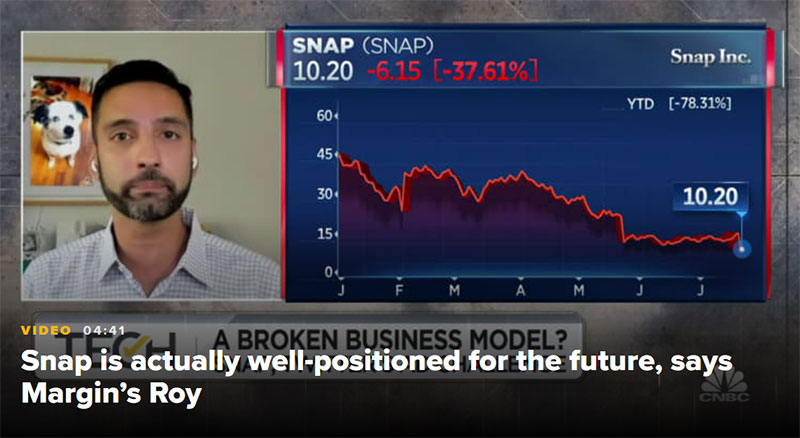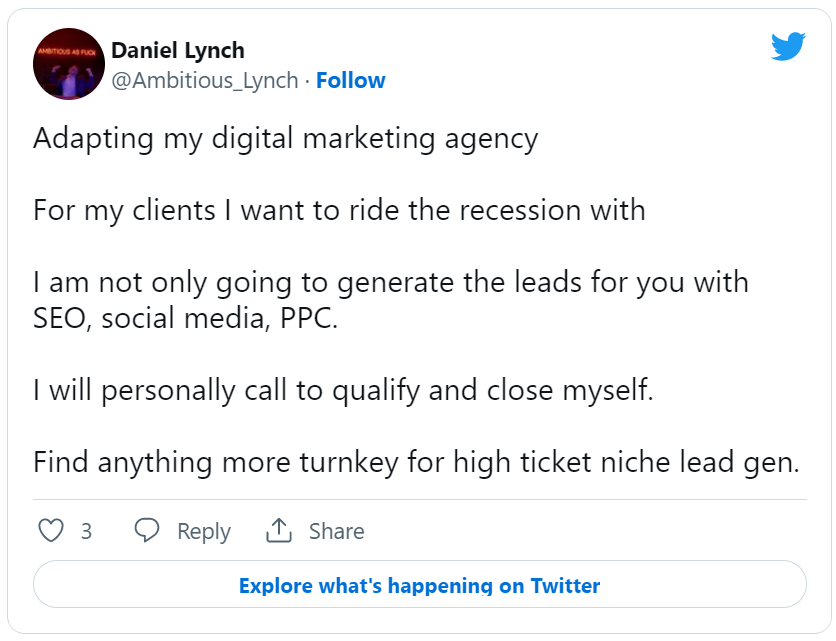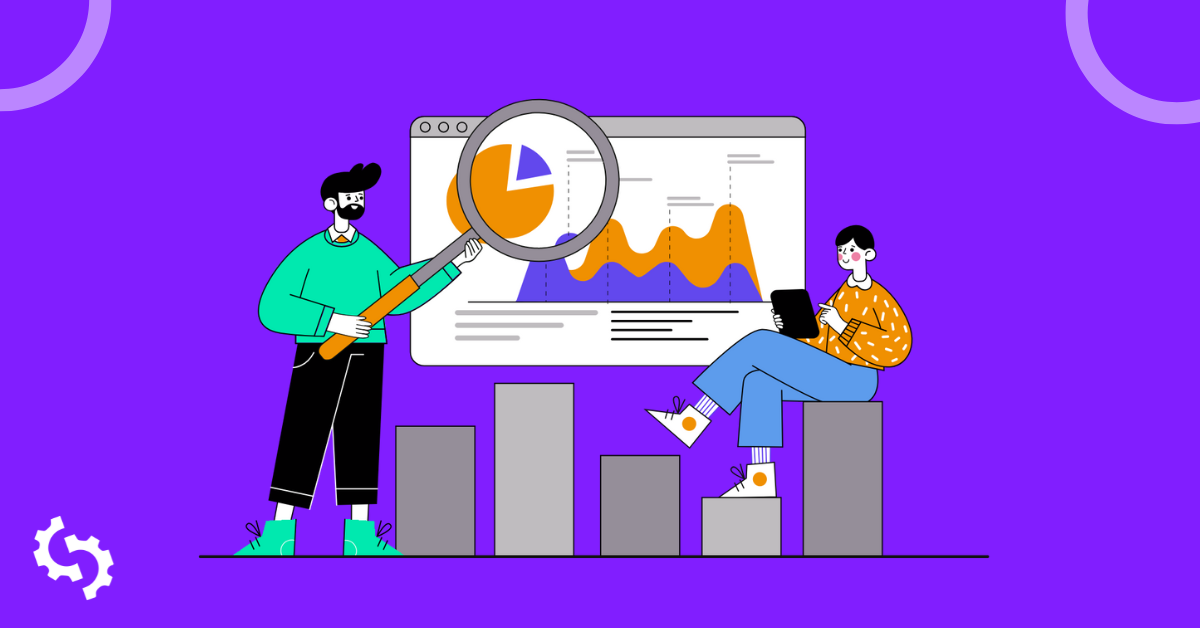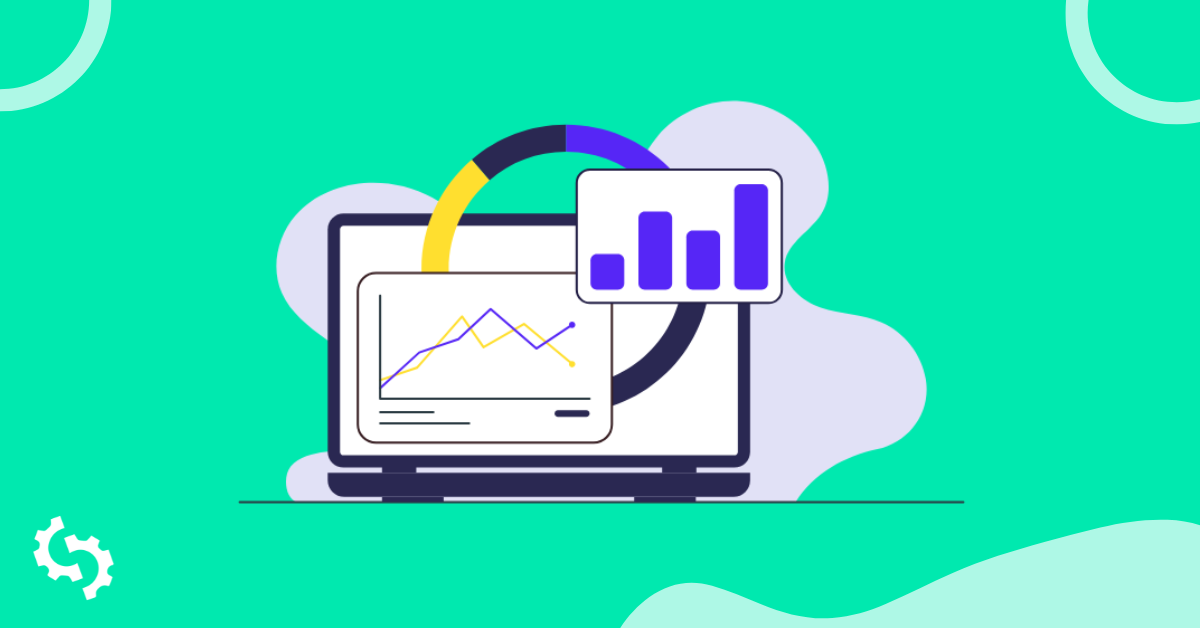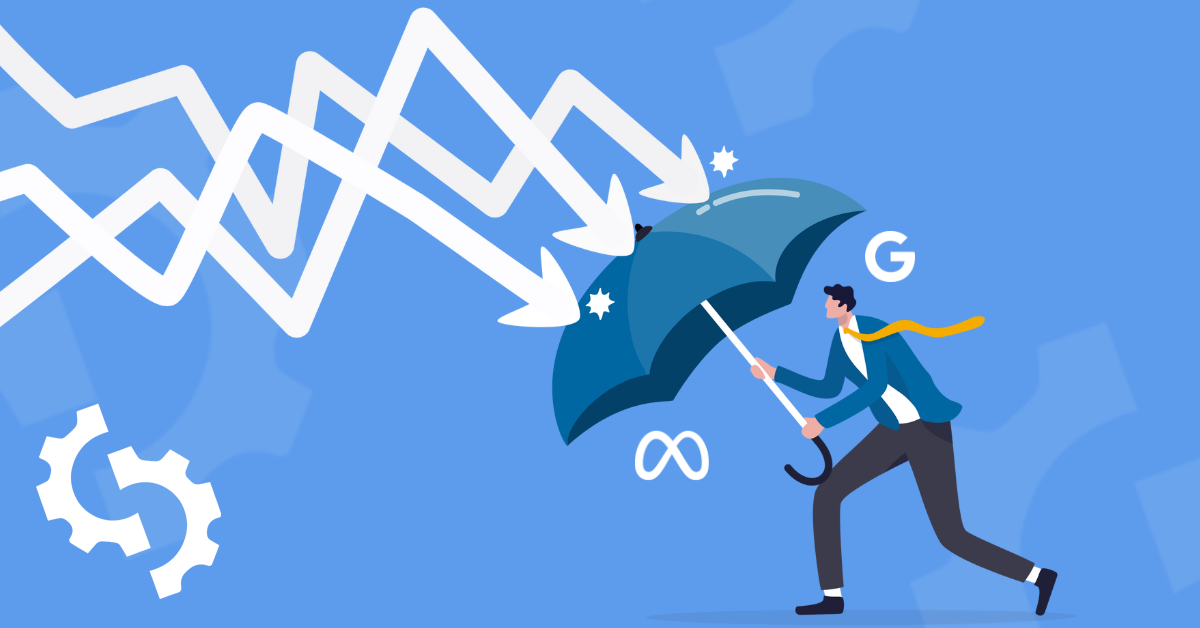
The 2022 Economic Slowdown
There is seemingly no let up of negative economic news around the world.
A recent New York Times article titled 'The World Economy Is Imperiled by a Force Hiding in Plain Sight' raises the myriad of economic issues such as rising inflation, rising interest rates, supply chain issues, lackluster GDP results but most interestingly, brought the focus to the now two-and-a-half year old elephant in the room: the pandemic.
"Most of the challenges tearing at the global economy were set in motion by the world’s reaction to the spread of Covid-19 and its attendant economic shock."
Searches on Google for the term 'recession' reached their peak around June 2022 when the US Federal Reserve started lifting interest rates more aggressively:
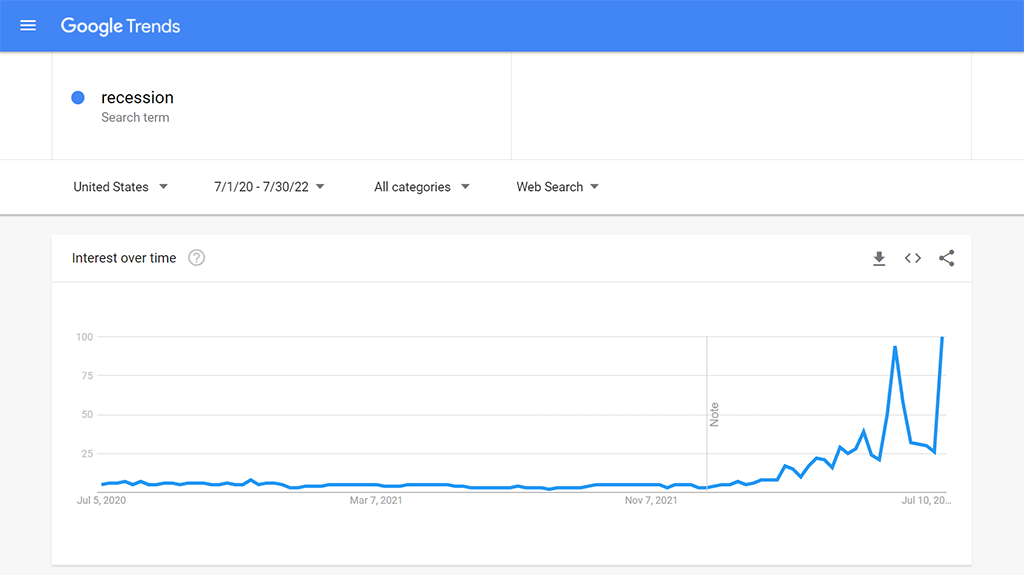
Adding to the negative market perception is the poor performance of some tech companies. Snap, for example, lost 39% of their share value in a single day. These negative corporate results sparked hiring freezes or even worse - layoffs in some cases.
Historically the reaction from marketers and advertisers during times of uncertainty like this is to rein in marketing budgets and/or retreat to performance marketing. But on the other hand there's always a fair showing from those on the agency side who say that cutting marketing budgets during times of crisis is unwise.
For example, this article by Seema Nayak from AdChina argues that there's less competition during tough times so being more present in market is an advantage. This makes sense, but of course it depends on your industry and target market.
Reactions from Agency Founders
As market uncertainty is happening in realtime, founders of micro agencies or marketing freelancers have been pivoting quickly to protect their revenue and help shield against client churn. Some even live-tweeting the experience:
But we wanted to find out about the small to mid-market agencies and how the economic downturn is affecting them. Here at SEOptimer we have the pleasure of working with thousands of digital agencies all around the world to automate their website lead generation through our Embeddable Audit Tool.
We recently spoke to a number of small and mid-size agency founders to learn more about their thoughts on the current economic downturn. We wanted to find out how their clients are reacting, what their agencies are doing in response, how they might be pivoting and what their broader thoughts are looking ahead to 2023.
No one has a crystal ball but these agency founders are on the frontline - speaking with clients, winning new business and working to retain and maintain marketing budgets.
These successful business leaders graciously shared their thoughts and what they are doing in the current market conditions. We wanted to understand what they're noticing and how they're reacting. A big thank you goes out to each of them for being involved!
Shift to bigger clients, bigger budgets
Kyle Smendziuk, WebMarketers
We've featured Ottawa digital agency WebMarketers in our articles in the past and were particularly impressed with how they pivoted in the early days of the pandemic in 2020 towards online education and workshops for local businesses.
WebMarketers have been going from strength to strength, moving upstream working with bigger clients and bigger budgets. The agency's CEO Kyle Smendziuk hasn't noticed any increase in client churn or budget cuts and has seen consistent success from their dedicated sales team and advertising.
"We’re shifting into doing work with bigger clients whose budgets aren’t impacted (yet at least) and who typically are impacted less by economic changes. Right now our sales have remained as consistent and stable as they have ever been."

WebMarketers have recently been focusing on more inbound and less outbound activities, also pushing partnerships and affiliates more.
They're also focusing more on high value touchpoints and more comms frequency with clients since they're working with clients who have chosen an agency instead of a digital marketing employee for strategic reasons and thus need to reinforce that as the right move both from a relationship and results standpoint.
Kyle's outlook towards 2023 is mixed. He believes mid-sized agencies will continue to succeed and grow but smaller 1-5 person teams will find it tougher.
Increase staff retention
Andy Crestodina, Orbit Media Studios
Orbit Media Studios is an award-winning web design firm based in Chicago and a proud BCorp. Andy Crestodina is the agency's Co-Founder and has seen it all given the agency was founded over 21 years ago.
Andy's outlook is fairly positive for the rest of 2022 but caveated by how agencies prospect for new business and where they focus:
"Most digital agencies will do well in the second half of the year, especially those that have strong marketing, good reputations and a diverse client base. Agencies that rely on PPC for leads or focus on a slumping vertical will struggle."

Andy says they've recently increased their rates this year and says it was long overdue considering what their competitors charge.
"It's an important time to keep both rates and utilization high, because this lets you keep salaries and bonuses high. It's a competitive job market and we need to stay competitive."
It's such a good point in the tight labor market currently. Although Andy says culture and job satisfaction are probably more important than salary, money matters, even more so in an uncertain market.
Share conversion strategies with clients
Rebekah Edwards, Clara
Clara is a Nashville-based SEO agency. Co-Founder & CEO, Rebekah Edwards, has noticed a small change in how clients are considering new contracts with some existing clients expressing financial concerns about meeting future payments but so far are still on target. To keep up with inflation the agency increased their rates by 12% recently.
As an SEO agency, typically there is a lag of several months between SEO activity and results. Given the market uncertainty this can pose more of a risk to some clients.
"The current market conditions have me concerned about new business, but I feel good about current client retention. For the most part, the results our clients see are significant enough and bring in enough new business to justify continue working with us."

In response, the Clara team are increasing communication and reiterating the value of their work in monthly updates. They're also thinking more critically about how they can increase not only traffic for their clients, but also on-site conversion rates. The agency has already begun to share insights and ideas with clients and develop creative solutions proactively.
Rebekah also makes a good point that ongoing changes to legislation around personal information and the way ads are delivered mean inbound marketing like content and SEO will continue to become more relevant.
"In the past, some businesses we've discussed work with have ultimately chosen to throw their budget entirely towards PPC because it's a quicker win — but that benefit isn't going to be as cut and dry anymore."
Rebekah is optimistic about 2023 and beyond. She sees the current market uncertainty as a short-term cautious "reset" of the economy to get us back to pre-pandemic conditions.
Increase ROI during economic uncertainty
Andrew Jackson, North Shore Digital
North Vancouver-based digital agency, North Shore Digital is a digital agency that works with clients in 4 main verticals: home services, financial services, schools and health practices.
Andrew Jackson is the agency's CEO & Founder. He mentioned that they haven't noticed any issues with budget cuts or client churn given the industries they service are somewhat more recession resistant and they primarily work with larger SMEs with revenues of $1 million+ per year. Andrew said that even clients with lower revenues should still be budgeting $50K-$100K on marketing every year.
"During times of recession our advice to clients is to keep spending on marketing as their investment may very well go further as competitors pull back."

Andrew gave the example of Google Ads - whereby clients bid in real time against competitors for clicks, impressions & conversions. If competitors reduce Google Ads spending due to austerity measures, this reduces demand for keyword clicks resulting in superior ROI for advertisers. North Shore Digital have developed an ROI Conversion Calculator that they use to monitor this closely.
The agency is in a current growth phase having approximately doubled their revenues each year. They are on track to meet this again for 2022. For this reason, Andrew is very hopeful about the 2nd half of 2022 and also has trade shows and events lined up for the rest of the year.
In looking ahead towards 2023, Andrew makes the good point that even if clients decide to pull back spend, it's their job as responsible agency owners to make sure they align to the necessary services and not the things that can be cut from the budget.
"If a recession does hit, we want to be the superhero that powers the small businesses we work with through to the other side in a better condition than when they entered it."
Faciliate community training and support
Joseph S. Kahn, Hum JAM
Hum JAM is an Atlanta and San Diego-based digital agency with a specialization in SEO. Joseph S. Kahn is the President of Hum JAM and sees the market starting to shift. Like many businesses, they have begun to raise service prices as a result of higher costs generally.
"We are seeing clients give a little more push-back on raising prices. Their costs are going up, so they aren't happy that ours are as well with not much more to expect in terms of extra service."

Joseph added that Hum JAM are turning their attention from 1-on-1 communications with clients towards a 1-to-many approach and offering a 'Community Circle' involving training and support. This enables the agency to supplement their need for more clients by shifting to the community and training the market.
Shift towards internal projects
James Oliver, Evolved Toaster
Evolved Toaster is a small creative digital agency based in the United Kingdom. The agency's Director, James Oliver has noticed an increase in client churn this year and as a result has started to focus on their own internal projects: affiliate marketing websites.
The agency specializes in SEO projects and James is pragmatic about the tension between clients expectations when budgets may be tight vs the long-term view needed when realizing the return on investment from SEO activities.
"There's always a demand for marketing services. However, with SEO taking a few months to kick in, we expect more clients to churn as they expect results faster."

James also expects market conditions to deteriorate in 2023 despite the fact that there will always be demand for marketing and SEO services.
The Agency Job Market
Despite marketing budgets falling, recent analysis from Jay Pattisall, Principal Analyst at Forrester shows near record levels of US agency employment (particularly advertising agencies) as reported by the US Bureau of Labor Statistics.
"Despite rising inflation, concern for recession, and tech company layoffs, US advertising industry job growth remains strong."

Digging into the data, Jay notices that the rise in ad agency jobs has come at the expense of more traditional areas in the broader industry. He noted a decline in jobs across direct marketing agencies and ad material distribution services. Despite the ad agency industry riding high at the moment, Jay warns:
"The stock market and ad market won’t stay at odds with one another for long. Rising interest rates, falling consumer confidence, and inevitable cuts to marketing will eventually catch up to the industry."
For agency owners Jay suggests a solution to retaining clients during tough economic times is to shift from a billable hours model to a result-based model whereby agencies are compensated on the results/business objectives they achieve. Many digital agencies made this switch years ago to cater to SMBs and the mid-market who are generally more price-conscious.
Consumer Business Confidence (or lack thereof)
The affect of higher prices on consumer confidence has negatively impacted many businesses which in turn negatively impacted digital agencies grappling with higher client churn and reduced marketing budgets. But there are interesting nuances and exceptions.
We spoke to Sarah M. Campbell, GVP Brand & Experience Strategy at one of the world's largest interactive agencies, Razorfish (part of the Publicis Groupe). She's been analyzing consumer confidence and the flow-on effects to businesses. Sarah outlined 3 main insights from the agency's wide-ranging research:
1. K-shaped recovery
While there’s debate about whether or not we’re headed into a recession, the pandemic recovery has been resembling what’s known as a K-shaped recovery, where certain sectors and people who were doing well before the pandemic are doing even better, while those who were doing marginally are struggling the most.
"K-shaped recoveries aren’t a short-term reaction, either; they tend to magnify existing societal and economic pressures to create an even larger gap in existing disparities."

Sarah cited wage increases as an example: while hourly workers saw a +5.6% increase year-over-year, this was no match for the inflation rate currently hovering around 8.5%, creating an economic position that’s more challenging to overcome.
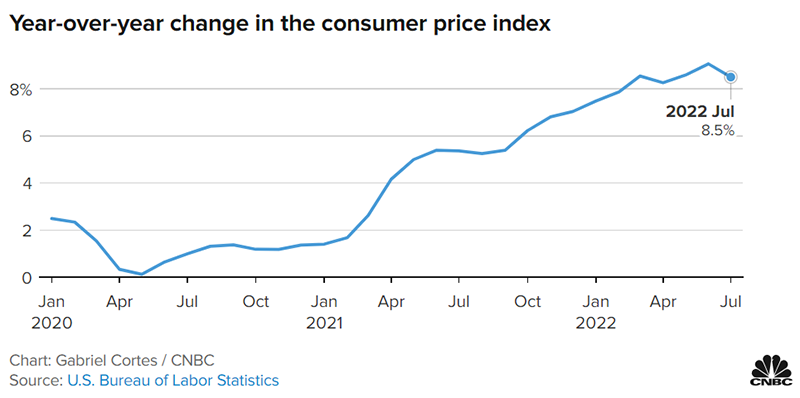
2. Whatever you do, don't go dark
As we've mentioned previously in this article, pulling back on marketing spend is often the first action marketers take during an economic downturn. Sarah says Razorfish cautions their clients about being overly reactionary.
"Short-term savings on marketing spend can enable competition to swoop in, damaging any hard-earned equity gained during flusher times."
After going dark for six months or more, 60% of brands saw significant declines on key metrics according to research consulting firm Kantar Millward Brown.
Sarah also says that establishing and nurturing a solid presence secures and nourishes strong brand equity, and the opportunity to capitalize on new audiences left behind as other brands go dark.
3. Now is the time for experimentation
During economic downturns, consumers’ behavior can be difficult to predict. The instability may cause consumers to reach for brands they know and trust, but they’re also far more likely to reach for competitors.
Switching was not only common during the pandemic, but when surveyed, consumers said they would continue their switching behavior post-pandemic: not only based on availability but on novelty too.
"After tending to your loyal customers, opportunity lies in exploring further. Knowing that consumers are switching more often than usual is an opportunity for brands to test and learn with new audiences, messages and media approaches."
These insights from Razorfish help set the scene for informed agency-client conversations in the 2nd half of 2022. Rather than businesses pulling back, this is a time of opportunity for some and it's the role of agencies to help guide their clients through the current economic dynamics.
In Summary
What we learnt from speaking with industry experts and agency founders is that they are resilient and there's certainly more positivity among them despite the current economic gloom.
The reality is, businesses still need to market themelves and sell their products and services. There'll always be a role for agencies to play. It does however come down to particular service lines and if they can support short term realization of ROI as well as industry niche. That being said, expert client advisory to help navigate any economic downturn will only go towards strengthening client relationships and therfore client retention.
Of course, some businesses will sail through any economic downturn unscathed but for agencies who do experience client churn or budget cuts it's about how you can still play an important role in a client's business and how you can steer them through the downturn. If you'd like to share your thoughts we'd love to hear from you. Get in touch on Twitter @seoptimer.
